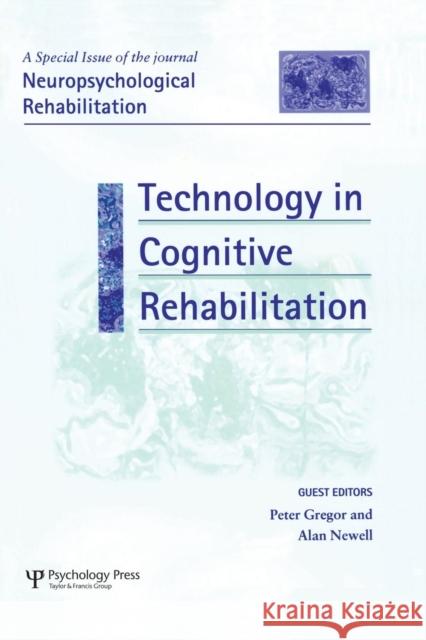Technology in Cognitive Rehabilitation: A Special Issue of Neuropsychological Rehabilitation » książka
Technology in Cognitive Rehabilitation: A Special Issue of Neuropsychological Rehabilitation
ISBN-13: 9781138877979 / Angielski / Miękka / 2015 / 260 str.
Technology in Cognitive Rehabilitation: A Special Issue of Neuropsychological Rehabilitation
ISBN-13: 9781138877979 / Angielski / Miękka / 2015 / 260 str.
(netto: 246,95 VAT: 5%)
Najniższa cena z 30 dni: 246,78 zł
ok. 16-18 dni roboczych.
Darmowa dostawa!
Communication and Information Technology has been used to support older and disabled people for over thirty years and there have been many successes in this field. Until recently, research has largely concentrated on people with physical or sensory dysfunction; computer technology has been increasingly used to support cognitive activities in able bodied people but its use to support people with disabilities has not had much widespread recognition. Yet well-designed C and IT systems have great potential to enhance the quality of life and independence of people with cognitive dysfunction, by: enabling them to retain a higher level of independence and control over their lives, providing appropriate levels of monitoring and supervision of 'at risk' people, without violating privacy, keeping people intellectually and physically active, and providing communications methods to reduce social isolation.
This special issue of Neuropsychological Rehabilitation recognises the potential of information technology to provide support for people with cognitive dysfunction, including the use of computers to provide traditional prostheses, albeit within the cognitive domain. The selection of papers in this issue shows that the help and support available can be far more than the 'artificial replacement of part of the body' (the literal definition of prosthesis) and can include techniques to provide lifestyle support for people who would not be thought of as requiring 'prosthetic support'.











